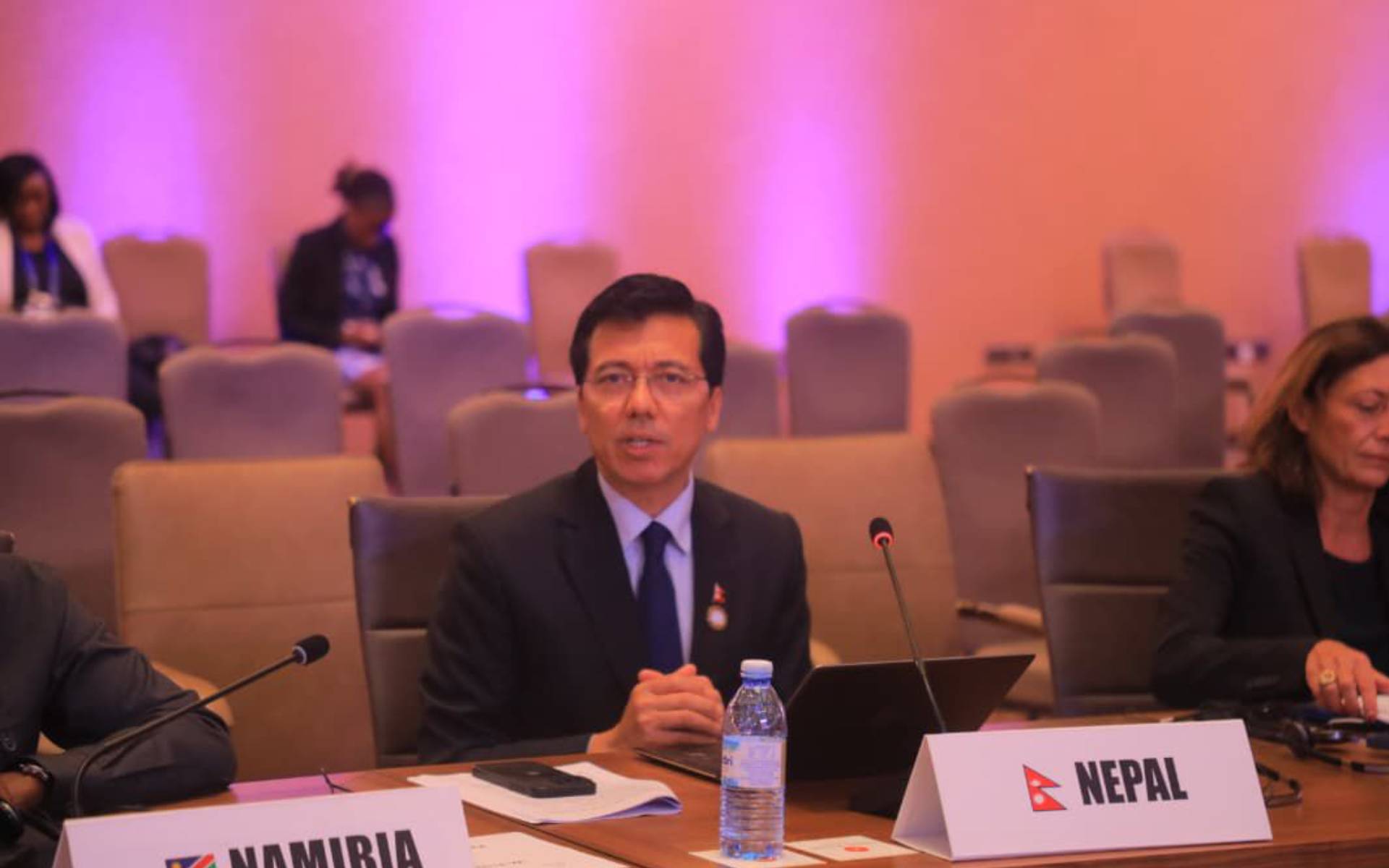
Since our leaders met in this venue during the 19th NAM Summit almost two years ago, the global crises and challenges we face have only grown more complex and interconnected. We have been facing multiple and overlapping crises and challenges: geopolitical tensions, conflicts, widening inequalities, growing youth unemployment, climate change, unsustainable debt, and digital divides, among others.
These challenges continue to test our resilience as well as the solidarity and commitment of our movement. Ever since its inception in 1961, the Non-Aligned Movement has remained a powerful voice for global peace, justice, human dignity, and shared prosperity. NAM has played its crucial role as a vital platform for safeguarding the interests of developing countries and amplifying the collective voice of the Global South for over six and a half decades. We sincerely believe that in these turbulent times, the founding values and ideals of the NAM-sovereignty, equality, mutual respect, non-interference, solidarity, and peaceful coexistence have never been more important and relevant.
As a founding member, Nepal remains firmly committed to the core principles of the Non-Aligned Movement. Our foreign policy continues to be guided by the Charter of the United Nations, non-alignment, the principles of Panchsheel, international law, and norms of world peace. Nepal always pursues an independent, objective, balanced, and non-aligned foreign policy based, as they are, on sovereign equality, mutual respect, mutual benefit, and peaceful settlement of disputes.
Let me take this opportunity to share that Nepal has recently witnessed important political developments and is now preparing for general elections in March 2026 to renew the democratic mandate of its people — an abiding commitment to democracy, good governance, and the values upheld by the Non-Aligned Movement.
Nepal also remains deeply committed to multilateralism, peacekeeping, and collective global responsibility. As the largest troop-contributing country to the United Nations peacekeeping operations, Nepal considers its service a modest yet meaningful contribution to global peace and stability. Equity, justice, and shared prosperity have long remained the aspirations of our people — especially in the Global South.
Yet, turning these aspirations into reality remains a challenge. The global wealth has surged to a scale unseen in centuries, but its equitable distribution remains elusive.
It is sobering that the global affluence is concentrated in a handful of the wealthiest nations and billionaires, while the bottom billions are deprived of their basic needs such as food, education, and healthcare. To add to our woes, the international trade and financial regime is skewed in favour of developed countries.
And, many countries in the Global South continue to reel under financing constraints, fragile infrastructure, limited institutional strength, low productivity, and a widening gap in technological advancement and innovation.
To achieve shared global affluence and shape a more peaceful, just, inclusive, and prosperous global order, we must strengthen solidarity, harmony, mutual understanding, cooperation, and collaboration among states. As we face the highest number of conflicts in recent history, we must choose dialogue over discord and diplomacy over division. Achieving the 2030 Agenda for Sustainable Development is imperative for ensuring collective global prosperity.
We must act now with urgency and in solidarity to accelerate progress on the SDGs. We believe that the timely and effective implementation of the Compromiso de Sevilla, the outcome of the Fourth International Conference on Financing for Development, is a crucial step forward. We underline that development finance must be adequate, accessible, predictable, and aligned with national priorities. We urge developed countries to fulfill their longstanding ODA commitment.
Debt relief — including debt restructuring and debt swaps — must be scaled up to ease the debt burdens of vulnerable countries. Support for institutional and human capacity-building should be tailored to the specific needs and priorities of developing countries, more specifically LDCs and the countries in special situations. We sincerely believe that the Non-Aligned Movement must lead to strengthening multilateralism, rebuilding trust, and making multilateral institutions deliver better.
It must amplify the collective voice of developing countries for the reforms of the global governance, including the UN and the global financial architecture, to make them fit-for-purpose.
Nepal emphasizes the importance of South-South cooperation as a vital mechanism to mobilize innovative finance, strengthen climate resilience, bridge capacity gaps, and harness digital transformation. We underline the need to narrow the digital divide within and among countries to create a peaceful, equitable, and prosperous society.
Similarly, we call for climate justice for many of us who are disproportionately affected by climate change impacts.
Nepal continues to advocate for collective global action on climate change and resilience with scaled-up, predictable and accessible climate finance, technology transfer, and capacity-building support. The first edition of the ‘Sagarmatha Sambaad’ held in May 2025 in Kathmandu echoed the call for climate justice and sustainable mountain development—goals that closely align with the NAM’s shared vision.
In conclusion, the principles and purposes of NAM are not mere ideals — they are pragmatic pathways to address the root causes of today’s global challenges. In a rapidly changing geopolitical landscape, NAM continues to serve as a beacon for multilateralism, equity, and inclusive development. We must harness this strength to advance our shared interests and shared global affluence. Let us stand united. Let us recommit to deeper cooperation for a more peaceful, more prosperous, and more sustainable future, not just for ourselves, but for generations to come.
(The article is an edited version of the statement delivered by Nepal’s Ambassador and Permanent Representative to the United Nations, Lok Bahadur Thapa, who is also the Leader of the Nepali Delegation, during the 19th Mid-term Ministerial Meeting of NAM in Kampala, Uganda, on October 16, 2025.)